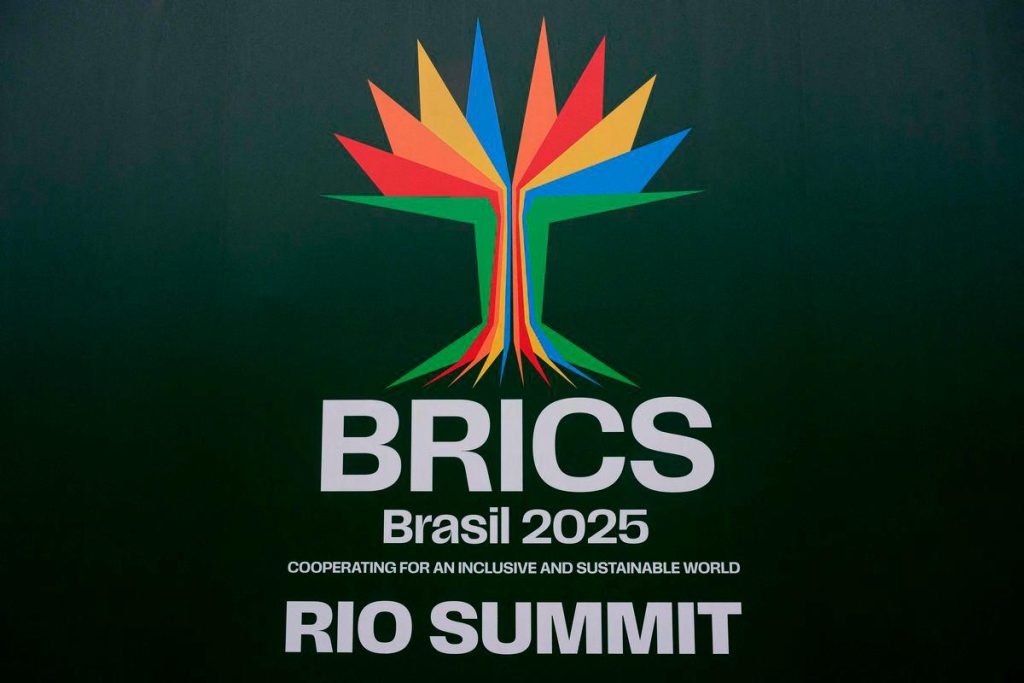Leaders of the BRICS group are set to criticise US President Donald Trump’s aggressive trade policies as they gather for a summit in Rio de Janeiro starting Sunday. However, divisions remain over how to address the ongoing turmoil in the Middle East.
Representing nearly half the world’s population and around 40 percent of global economic output, the bloc—which includes Brazil, Russia, India, China, and South Africa—is expected to voice opposition to what they view as unjust US tariffs. Sources close to the summit’s negotiations suggest a joint statement denouncing economic uncertainty caused by the tariffs is in the works.
Although the final declaration is not likely to name the United States or Trump directly, the message is expected to clearly signal discontent with Washington’s approach to trade.
“We’re expecting a cautious tone. Mentioning the United States directly in the final text will likely prove too difficult,” said Marta Fernandez, director at the BRICS Policy Center in Rio’s Pontifical Catholic University.
She noted that Beijing, which only recently reached a trade truce with Washington, is keen to avoid stirring new tensions with the US at this point.
This year’s summit will miss the usual clout brought by Chinese President Xi Jinping, who for the first time in 12 years will not be attending in person. Analysts believe his absence could stem from a combination of recent diplomatic activity—including hosting Brazilian President Luiz Inacio Lula da Silva in Beijing — and geopolitical sensitivities.
“Xi likely doesn’t want to appear outshone by Indian Prime Minister Narendra Modi,” said Ryan Hass, a former US National Security Council official now at the Brookings Institution. Modi, who will be honoured with a state lunch, is among the summit’s key guests.

Xi’s spot will be taken by Premier Li Qiang. Russian President Vladimir Putin will also skip the in-person gathering due to international arrest warrants over war crimes but is expected to join virtually, according to the Kremlin.
The double absence of Xi and Putin is seen as a setback for Lula, who has aimed to elevate Brazil’s profile on the global stage. By November 2025, Brazil will have hosted the G20, the BRICS summit, and COP30, ahead of the country’s hotly contested presidential elections.
Tensions in the Middle East continue to pose a challenge for the group’s unity. Iranian President Masoud Pezeshkian will also miss the summit, with Tehran reportedly pushing for a tougher collective position on conflicts in Gaza and with Israel.
So far, BRICS members have struggled to agree on wording that goes beyond general calls for peace and the establishment of a Palestinian state.
Alongside geopolitics, the summit will also discuss issues such as artificial intelligence and global health.
The expansion of BRICS in recent years — now including Saudi Arabia, the UAE, Egypt, Ethiopia, Iran, and Indonesia — has strengthened the bloc’s influence but also introduced new complexities.
Brazilian Foreign Minister Mauro Vieira, however, expressed optimism that consensus could still be found: “BRICS nations have always spoken with one voice on key international issues, and there’s no reason this time should be any different when it comes to the Middle East.”


 Trending
Trending 